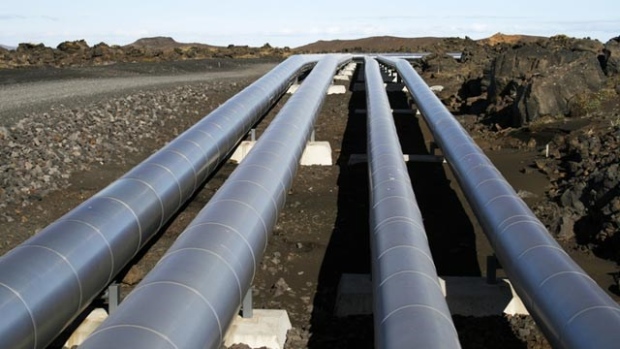Aug 3, 2016
'Sad, but true': Why investing in existing pipelines could be preferable to building from scratch

In making a relatively modest investment in an American pipeline network, Enbridge (ENB.TO) could be sending a major warning about the future of the Canadian oil and gas industry.
The Calgary-based pipeline builder announced late Tuesday it will spend roughly $2 billion for stakes in two preexisting pipelines that run from North Dakota to Illinois and from there down to the refining megahub in the Texas Gulf Coast region. As a result, the company is terminating a joint venture it had been working on with Marathon Petroleum to build a $2.6-billion pipeline – called Sandpiper – to ship North Dakota Bakken crude eastward to its hub in Superior, Wisconsin.
Sandpiper was already beset by regulatory delays that forced Enbridge earlier this year to push its expected start date back by two years to 2019, and RBC told clients the North Dakota deal announced late Tuesday was “almost certainly better” than moving forward with Sandpiper. However, one veteran industry insider sees the move to favour older pipelines ahead of newly constructed arteries as indicative of a trend that could cause trouble for the growth ambitions of Canadian oil and gas producers.
“Better to use the pipelines already in the ground, expand them, than to beg for new,” the Calgary-based analyst who did not want to comment on the record told BNN via email. “Sad, but true.”
Despite the historic crash in crude oil prices, Canadian crude oil production is set to grow steadily until at least 2020. Pipelines in western Canada, meanwhile, have already been operating at or near capacity for years, which has contributed to a wider discount specifically for the lion’s share of Canadian oil output: diluted bitumen from the oil sands of northern Alberta.
Having covered the energy sector for more than three decades, the Calgary-based analyst stressed any recovery in spending levels from the industry will be directed to the United States well before other jurisdictions. Namely, Canada. New regulations brought in by the federal Liberal government are at least partially to blame, the analyst said.
“Canada is an ‘avoid’ since it is too much of an unknown,” the analyst said. “It is no longer objective in terms of meeting [National Energy Board] standards, rather it is now subjective to cabinet ministers with zero knowledge of the industry who rely on politically selected individuals to ‘review’ under a social license lens.”



